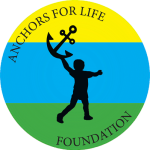FAQ’s
What makes the Lions Quest program better than other programs?
- The LionsQuest K-12 programs are recognized by the Collaborative for Academic, Social, and Emotion Learning (CASEL) as a “SELECT” program, the highest designation awarded for outstanding instructional content in social and emotional learning, high quality evaluation and exemplary professional development.
- Skills for Adolescence has been recognized as a “Model” Program by the Center for Substance Abuse Prevention (CSAP) and the Substance Abuse and Mental Health Services Administration (SAMHSA) as a result of a rigorous longitudinal evaluation study from the National Institute on Drug Abuse (NIDA).
- Lions Quest programs are recognized for their merit by the United States Department of Education and the Character Education Partnership.
- In addition, Lions Quest is supported by Lions Club International, National Association of School Administrators, National Association of Secondary School Principals, Canadian Association of Principals, National Association of Elementary Principals, National Middle School Association, W. K. Kellogg Foundation, W. Clement and Jessie V. Stone Foundation, and Moore Foundation.
How long does the program last?
- Lions Quest publishes SKILLS FOR GROWING (Kindergarten – 5th grade)
- SKILLS FOR ADOLESCENCE (Grades 6-8 or 7-9 depending on the school’s grade configuration
- SKILLS FOR ACTION (Grades 9 – 12).
The local school district determines the number of years dedicated to learning and applying the skills and American citizenship characteristics through experiential and holistic growth which is provided throughout the Lions Quest spiraling curriculum.
What are the skills being developed and strengthened through the use of Lions Quest with our children?
- There are a dozen skills being taught: appreciating the family, communication, cooperation, decision making, goal setting, higher-order thinking (creative out-of-the-box thinking), managing emotions, problem solving, resisting negative peer pressure, responsibility, service-learning, and strengthening relationships. All of these skills are vital to our children reaching their full potential in the 21st century. However, Lions Quest also addresses American citizenship characteristics:
- A healthy and drug-free lifestyle, commitment to family, courage, honesty, kindness, respect for self and others, responsibility for one’s self and actions, self-discipline, and service to others.
Is the program after school or during the classroom day?
- In order for all students to have access and ability to reach their highest level of growth and performance, the ANCHORS FOR LIFE FOUNDATION encourages all districts to find an appropriate time within the school day.
- If needed, our professional educator will provide scheduling options, or “Out-Of-The-Box” brainstorming with the school’s faculty and staff.
- Due to local, state, or federal mandates regarding the school day, Lions Quest® has created and published an after-school program.
Will my child have to pay for the teacher/administrator training and/or curriculum?
- The Lions Quest teacher and administrator training and curriculum are underwritten through a financial partnership with the ANCHORS FOR LIFE FOUNDATION and the school district/system.
Is there a Help Desk for teachers, staff, and administrators?
- Yes, ANCHORS FOR LIFE FOUNDATIONprovides professional educator assistance via website communication (www.anchorsforlifefoundation.org), phone, e-mail, text, and individual attention as needed.
- The Lions Quest® website has resource tools.
How does ANCHORS FOR LIFE FOUNDATION follow student progress?
- ANCHORS FOR LIFE FOUNDATION relies on the professional expertise and data provided by the individual schools/districts.
- When requested ANCHORS FOR LIFE FOUNDATION is pleased to assist schools and or districts with this process at no additional costs.
- Areas of review are
- attendance
- disciplinary incidents
- state/standardized testing results
- academic grades.
Additional areas of review may arise such as service learning activities, qualitative anecdotal information, and/or student initiatives. comparative analysis based on the prior year(s). All information is shared with the school/district.
